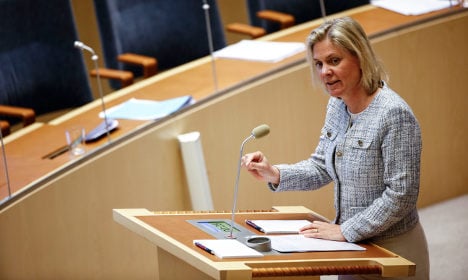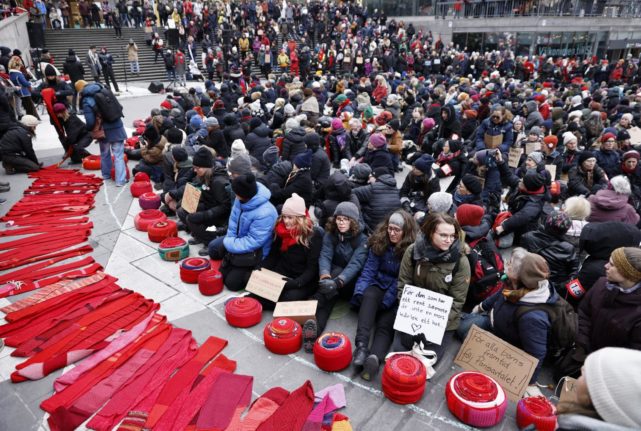p { margin-bottom: 0.25cm; line-height: 120%; }a:link { }
Most of the members of the centre-right Alliance opposition stuck by their promise to abstain in order to allow the Social Democrat-Green spring budget go through in Tuesday's vote.
The budget will allow the coalition to implement more of its centre-left policies.
Since the end of last year, Stefan Löfven's government has been following the Alliance's financial plan, following a political crisis in Sweden. This policy emerged after a complex December deal, designed to minimize the nationalist Sweden Democrats' influence in parliament after the party stoked the chaos by voting with the centre-right parties to block the government's original budget.
But the agreement also paved the way for Prime Minister Stefan Löfven's top team to make amendments to the budget this spring and to ensure its next budget proposal gets passed in the autumn.
READ MORE: What is the December Agreement?
Only a couple of opposition Moderate Party politicians – Finn Bengtsson and Anders Hansson – refused to follow the Alliance's line and voted against the centre-left budget on Tuesday.
Bengtsson called the December Agreement an “unholy pact” and said he could not bring himself to support left-wing policies.
But despite internal disagreement within the opposition, experts predict the controversial deal will survive in the coming months thanks toTuesday's vote.
“Given where the pieces are now, I think the December Agreement will last. I think it will grow ever-stronger as time passes, because the next election will come closer. Nobody will want to meddle with it then. Especially not [Moderate leader] Anna Kinberg Batra, if there's a hope to grow stronger than the centre-left and reclaim government power,” politicial scientist Mikael Sundström of Lund University told Swedish newswire TT.
His counterpart at Umeå University, Torbjörn Bergman, added that the alternatives to the December Agreement are too unpalatable for any of the parties to consider.
“None of them want to negotiate with the Sweden Democrats and the Alliance has no reason to try to topple the government and form its own,” he told TT.
READ MORE: How did the Sweden Democrats go mainstream?
Some of the budget reforms announced earlier this year, and approved in Tuesday's vote include more workers in the elderly care sector, creating new places in higher education and adult training, railway maintenance and raised unemployment benefits.
Social Democratic politics professor Ulf Bjereld, based at Gothenburg University, told The Local in April: “If you want to summarize it, it's a fairly traditional Social Democratic – and of course now Green as well – budget where you care for the welfare, by raising for example the cap on unemployment benefits and employing more workers in the elderly care sector. It's a symbolic 'reset budget' to bring back the social safety net of the last century.”



 Please whitelist us to continue reading.
Please whitelist us to continue reading.